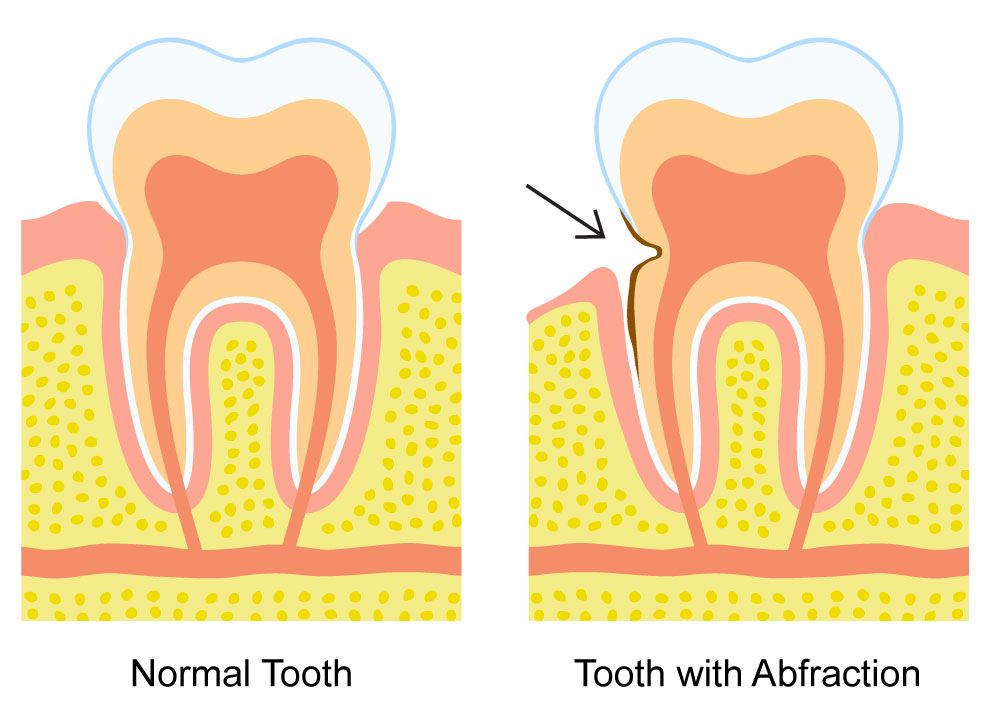What You Should Know about Dental Damage and Tooth Abfractions
 Many people are surprised to learn that tooth erosion can be caused by factors other than acid or decay. Tooth abfractions are a form of tooth erosion caused by mechanical forces that can leave the teeth vulnerable to serious dental damage. Fortunately, restorative dentistry treatments can be performed to repair the damage caused by dental abfractions and restore dental health. Find out more about dental damage and tooth abfractions in this overview from Pittsburgh, PA dentist Edward Narcisi.
Many people are surprised to learn that tooth erosion can be caused by factors other than acid or decay. Tooth abfractions are a form of tooth erosion caused by mechanical forces that can leave the teeth vulnerable to serious dental damage. Fortunately, restorative dentistry treatments can be performed to repair the damage caused by dental abfractions and restore dental health. Find out more about dental damage and tooth abfractions in this overview from Pittsburgh, PA dentist Edward Narcisi.
What Are Tooth Abfractions?
Tooth abfractions, also called abfraction lesions, are a form of tooth erosion. Tooth abfractions are characterized by small notches at the gum line. Tooth abfractions may appear as angular notches or may look more rounded. A more rounded appearance is common to older tooth abfractions as a result of the continuation of the erosion process.
What Causes Tooth Abfractions?
As stated previously, tooth abfractions are a form of tooth erosion caused by mechanical forces. Mechanical forces, like the stress of biting or teeth grinding, can wear the teeth near the gum line. This area is particularly vulnerable because it is where the enamel stops and a softer layer of the teeth, the cementum, begins.
Although biting forces can cause tooth abfractions to develop, most people with proper alignment will not develop abfractions. Rather, tooth abfractions are more likely to occur in those who have misaligned teeth, often called a “bad bite.” The likely reason is that malocclusion exposes the teeth to uneven pressure and forces as the teeth try to compensate for bite issues.
Dental Damage and Tooth Abfractions
Once tooth abfractions begin to form, the tooth will not repair itself. Because tooth abfractions are a permanent form of dental damage, it is important to seek treatment. Without proper treatment, tooth abfractions can lead to serious dental damage such as:
- Tooth decay: Tooth abfractions wear away the protective enamel layer of the teeth, leaving the inner structures vulnerable to plaque, bacteria, and acids from food and drink. Without the enamel intact, tooth decay can occur at an alarmingly fast rate.
- Root canal infections: When tooth abfractions go untreated and decay occurs, bacteria may be allowed to reach the inner root canal of the tooth, often resulting in a root canal infection. Root canal infections directly affect the pulp tissue, blood vessels, and nerves of the teeth, causing severe pain. If left untreated, root canal infections can cause infected teeth to die, leading to tooth loss or extraction.
- Increased dental sensitivity: Tooth abfractions can expose the inner dentin layer of the teeth, as well as the nerves, to fluctuations in hot and cold when eating or drinking, leading to increased tooth sensitivity.
- Tooth loss: In severe cases, tooth abfractions may result in tooth loss due to the progression of tooth decay or root canal infections.
Seek Treatment for Tooth Abfractions
If you suspect you suffer from tooth abfractions, we encourage you to schedule a consultation with Dr. Narcisi to learn more about your treatment options.


